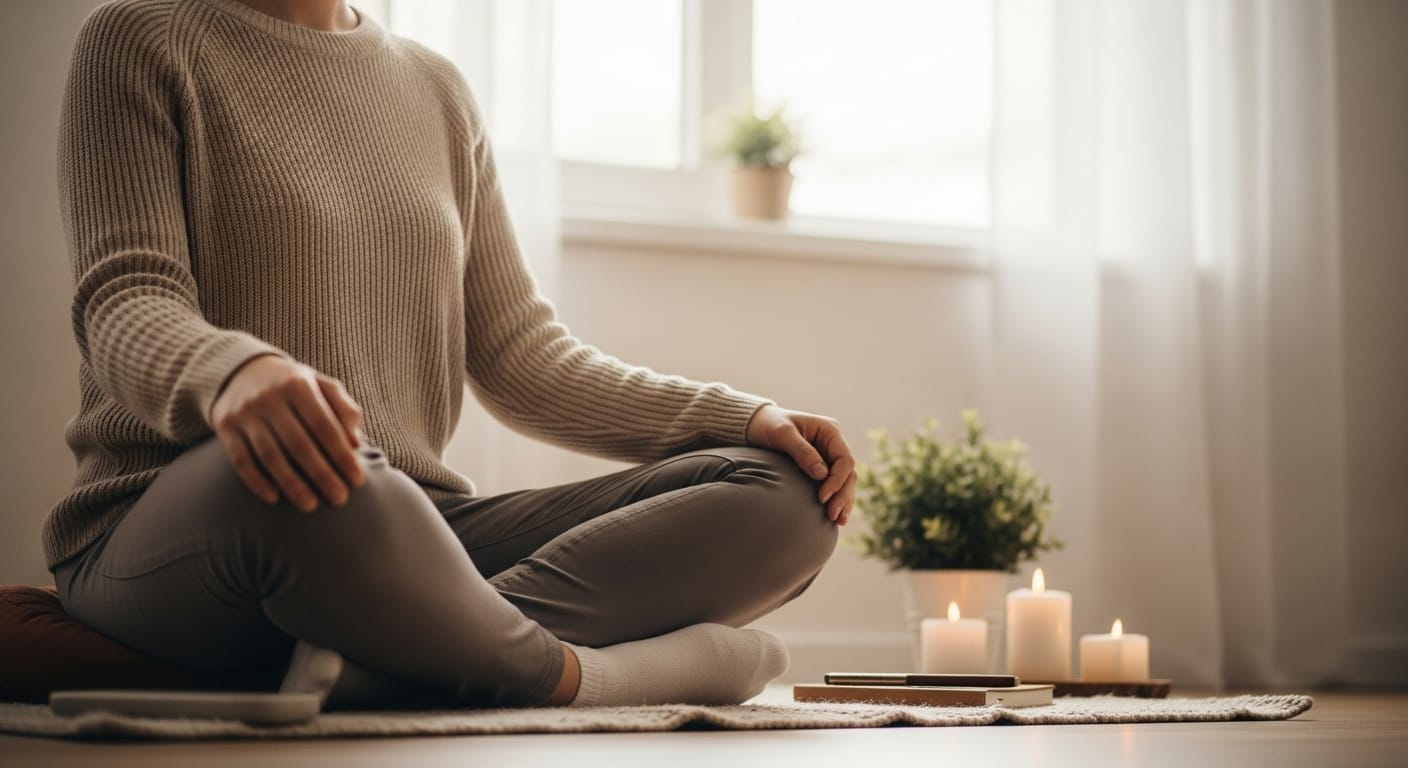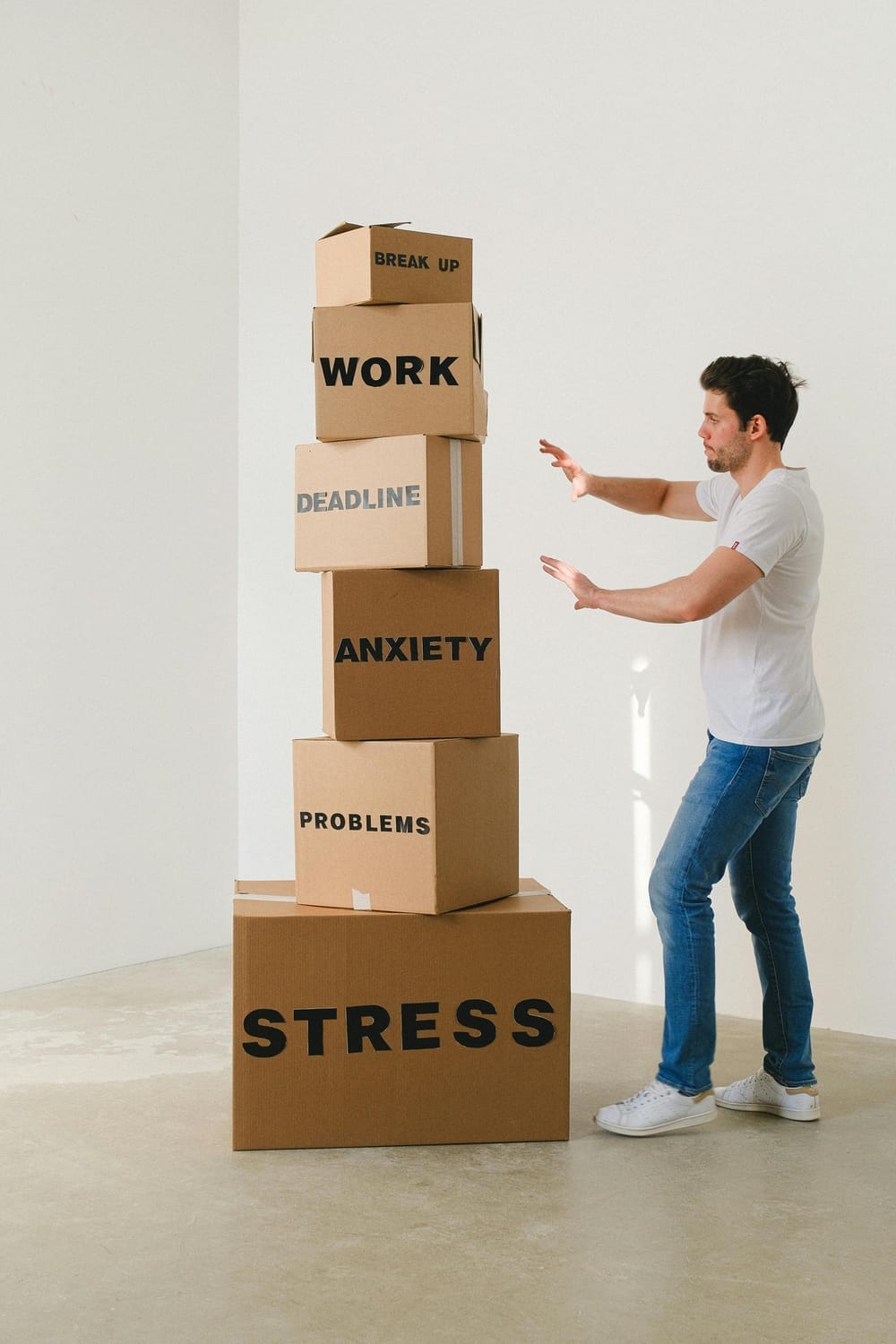

Mindful
Meditation
Unlocked
"Quiet the Mind. Unlock the
Present. Discover Mindfulness
That Transforms."
Proven Tips to Sleep Better Tonight
Do you find yourself lying awake at night, unable to sleep? You're not alone. Millions of people around the world struggle with sleep challenges every night. This can harm their health and happiness.
Getting a good night's rest is key for feeling refreshed. It can also make you happier and more productive. In this article, we'll share some effective sleep tips to help you sleep better tonight.
Key Takeaways
Get ready for a restful night's sleep with our expert tips.
Discover the secrets to improving your sleep quality.
Learn how to create a sleep-conducive environment.
Find out how to establish a relaxing bedtime routine.
Improve your overall well-being with better sleep.
Understanding What Affects Your Sleep Quality
Sleep quality is influenced by many factors. These include physical and psychological aspects. To improve sleep quality, it's important to know these factors and their impact on your rest.
Common Causes of Sleep Disruption
Sleep disruption can come from many sources. Knowing these causes is the first step to reducing their impact.
Physical Factors That Disturb Sleep
Physical factors like an uncomfortable sleep environment, pain, or discomfort can disrupt sleep. It's key to have a comfortable sleep space.
Psychological Barriers to Quality Sleep
Psychological factors, such as stress and anxiety, can also affect sleep. It's important to manage these to sleep better.
The Science of Sleep Cycles
Sleep is not just one state but a cycle of different stages. Knowing these stages can help improve sleep quality.
How Sleep Stages Affect Rest Quality
The various stages of sleep, including REM and non-REM sleep, are key to rest quality. Disruptions in these stages can make you feel less rested.
Signs You're Not Getting Enough Deep Sleep
Feeling groggy upon waking and experiencing fatigue are signs of not getting enough deep sleep.
To better understand sleep stages, consider the following table:
| Sleep Stage | Characteristics | Impact on Rest Quality |
|---|---|---|
| REM Sleep | Dreaming, heightened brain activity | Critical for mental recovery |
| Non-REM Sleep | Reduced brain activity, restoration | Essential for physical recovery |
| Deep Sleep | Slow brain waves, minimal body movement | Vital for feeling rested and refreshed |
How to Sleep Better by Optimizing Your Sleep Environment
Your sleep environment greatly affects how well you rest. A well-designed bedroom can boost your healthy sleep habits and sleep hygiene. It's key to make your sleep environment better for better sleep.
Creating the Ideal Bedroom Temperature and Lighting
The temperature and lighting in your bedroom are key to good sleep. A cooler bedroom is usually better for sleep.
Finding Your Optimal Sleep Temperature
Studies say the best sleep temperature is 60-67 degrees Fahrenheit. Try different temperatures to find what's best for you.
Light Management Strategies for Better Sleep
It's important to manage light to keep a healthy sleep cycle. Blackout curtains or dim red nightlights can help make your bedroom sleep-friendly.
Choosing the Right Mattress and Pillows
Getting a comfortable mattress and pillows is vital for sleep. Look at material, firmness, and loft when picking your bedding.
Choose a mattress that supports your body right.
Pick pillows that keep your neck and spine aligned.
Minimizing Noise and Distractions
A quiet bedroom is key for uninterrupted sleep. Use earplugs, white noise machines, or soundproofing to reduce distractions.
Establishing an Effective Bedtime Routine

To get better sleep, it's key to have a calming routine before bed. A bedtime routine tells your body it's time to sleep. This makes falling and staying asleep easier. You can pick activities that relax you the most.
Relaxing Wind-Down Activities
Doing relaxing things before bed calms your mind and body. Reading a book or listening to soft music are great ways to unwind. Meditation or deep breathing can also calm your mind.
Calming Practices to Try 30 Minutes Before Bed
Try progressive muscle relaxation or guided imagery 30 minutes before bed. These can lower stress and get your body ready for sleep.
Bedtime Rituals That Signal Sleep to Your Brain
Creating bedtime rituals, like drinking herbal tea or taking a warm bath, tells your brain it's time to sleep. These rituals make your sleep environment better.
The Importance of Consistent Sleep Schedules
Keeping a regular sleep schedule is important for your body's clock. Going to bed and waking up at the same time every day, including weekends, boosts sleep quality. Being consistent helps your body get into a sleep routine, making it easier to fall asleep and wake up feeling good.
Digital Detox: Managing Screen Time Before Bed
It's important to limit screen time before bed to improve sleep. The blue light from screens can stop melatonin production, making it hard to sleep. Try to avoid screens for at least an hour before bed or use blue light filtering glasses or apps.
Lifestyle Changes That Improve Sleep Quality

Making a few key lifestyle changes can greatly improve your sleep quality. A holistic approach that includes diet, exercise, and stress management can lead to better sleep patterns.
Nutrition and Dietary Habits for Better Sleep
The food you eat is key to good sleep. Eating a balanced diet with sleep-promoting foods can make a big difference.
Foods That Promote Sleep
Foods high in tryptophan, like turkey, chicken, and fish, help you sleep. Also, complex carbs like whole grains and some fruits boost serotonin, helping you relax.
What to Avoid Before Bedtime
Stay away from heavy meals, caffeine, and alcohol before bed. Caffeine and alcohol can mess with your sleep. Try to limit them in the hours before bed.
Exercise and Physical Activity Timing
Exercise is good for sleep, but when you do it matters. Avoid vigorous workouts close to bedtime. It's better to exercise earlier in the day.
Stress Management and Relaxation Techniques
Managing stress is key for better sleep patterns. Adding relaxation techniques to your day can help reduce stress.
Breathing Exercises for Better Sleep
Deep breathing exercises calm your mind and body, getting you ready for sleep. Diaphragmatic breathing is very effective.
Progressive Muscle Relaxation Method
This method involves tensing and relaxing muscles to release tension. It helps you relax and sleep better.
Conclusion: Your Path to Better Sleep Starts Tonight
Improving your sleep quality is within reach. By understanding what affects your sleep and using the right strategies, you can wake up feeling refreshed. This article offers tips to help you sleep better, from making your sleep space comfortable to setting a regular bedtime routine.
To start sleeping better, create a sleep-friendly environment and relax before bed. Also, adopt healthy habits. By doing these things, you'll be on your way to better sleep and a healthier life. Start tonight for a restful and rejuvenating sleep experience.
FAQ
What are some simple ways to improve my sleep quality?
To better your sleep, stick to a regular sleep schedule. Make your bedroom a sleep haven. Stay away from caffeine and screens before bed. Try deep breathing or muscle relaxation to relax.
How can I create a bedtime routine that promotes better sleep?
Start by setting a fixed bedtime and wake-up time. Add calming activities like reading or meditation to your routine. Avoid screens and ensure your bedroom is cool, dark, and quiet.
What are some natural remedies that can help me sleep better?
Natural sleep aids include melatonin, valerian root, and lavender oil. Herbal teas like chamomile or peppermint can also help. Yoga, tai chi, or meditation can calm your mind and body before sleep.
How can I manage stress and anxiety to improve my sleep?
Manage stress with journaling, deep breathing, or muscle relaxation. Mindfulness meditation, yoga, or tai chi can also help. If stress persists, seek help from a mental health professional.
What are some common sleep disorders and how can I get help?
Sleep disorders like insomnia and sleep apnea are common. If you think you have a disorder, see a doctor. They can help with diagnosis and treatment, like lifestyle changes or medication.
How can I maintain healthy sleep habits over time?
Keep your sleep schedule and routine consistent. Continue using relaxation techniques and stress management. Adjust your sleep environment as needed. Also, watch your diet and exercise to support better sleep.
Stay Mindful
Get updates & free mental wellness tips.
Hi 👋
Hope you are doing okay, Just want to let you know,
Some links on this site are affiliate links. We may earn a small commission if you make a purchase — at no extra cost to you.
Understand Your Mind.
Try our quick quizzes to learn more about your mental health.
Check these out









